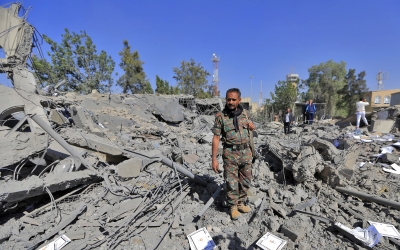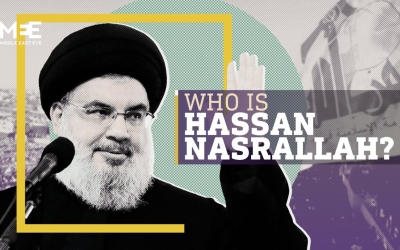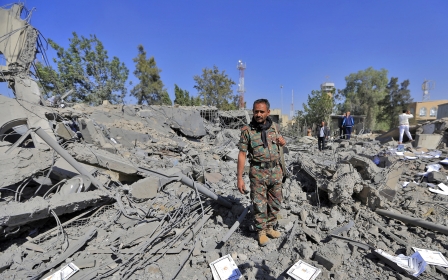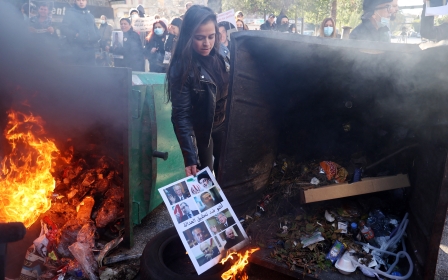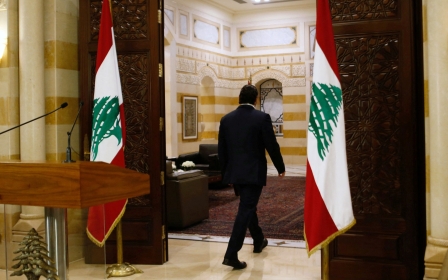Lebanon will not 'hand over' Hezbollah arms at Gulf meeting, says foreign minister
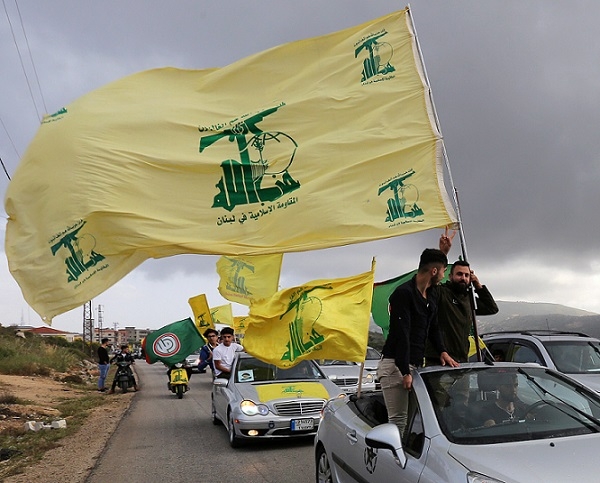
Lebanon's foreign minister said he was not going "to hand over" Hezbollah's weapons during a meeting this weekend with Gulf Arab counterparts that want Beirut to rein in the movement in exchange for improved ties.
In a nod to Gulf concerns, Lebanon will however say that the country will not be "a launchpad for activities that violate Arab countries," according to sources familiar with a draft government letter responding to Gulf terms for improved ties.
New MEE newsletter: Jerusalem Dispatch
Sign up to get the latest insights and analysis on Israel-Palestine, alongside Turkey Unpacked and other MEE newsletters
Lebanon is due at the meeting in Kuwait on Saturday to deliver its response to the terms for thawing relations, which have suffered as the heavily armed Hezbollah has grown more powerful in Beirut and the region.
"I am not going [to Kuwait] to hand over Hezbollah's weapons," Lebanese Foreign Minister Abdallah Bou Habib told Al Jazeera.
"I am not going to end Hezbollah's existence, it is out of the question in Lebanon. We are going for dialogue."
Hezbollah supports Iran in its regional struggle for influence with US-allied Gulf Arab states, which say the movement has aided the Iran-aligned Houthis who are fighting a Saudi-led coalition in Yemen.
Last month, Hezbollah described the claim they were helping the Houthis as “ridiculous” and “insignificant”.
'Will take time'
The terms delivered to Beirut on 22 January by the Kuwaiti foreign minister include setting a time frame for implementing UN Security Council resolutions, among them Resolution 1559 that was adopted in 2004 and calls for the disarmament of non-state militias in Lebanon.
A draft of the government's response seen by Reuters sidesteps the issue, expressing Lebanon's respect for UN resolutions "to ensure civil peace and national stability".
But it mentions no specific UN resolution or any steps to implement them.
Bou Habib told Al Jazeera that implementing resolution 1559, which would require Hezbollah's disarmament, "will take time".
The Gulf rift has added to the difficulties facing Lebanon as it struggles with a financial crisis that the World Bank has described as one of the sharpest depressions ever recorded.
Prevent drug smuggling
Saudi Arabia and its fellow Gulf Arab monarchies once spent billions of dollars in aid in Lebanon before ties soured.
Ties hit new lows last October when Saudi Arabia and several other Gulf states expelled Lebanese ambassadors in response to comments by a former Lebanese government minister criticising the Saudi-led coalition fighting in Yemen.
The visit to Beirut last week by Kuwaiti Foreign Minister Sheikh Ahmad Nasser al-Mohammad al-Sabah was the first since the rift.
In the draft letter, Lebanon commits "verbally and actually" to a policy of disassociation from regional conflicts.
It also pledges to strengthen measures being taken by Lebanon in cooperation with other Arab states to prevent drug smuggling to Gulf Arab states.
Middle East Eye delivers independent and unrivalled coverage and analysis of the Middle East, North Africa and beyond. To learn more about republishing this content and the associated fees, please fill out this form. More about MEE can be found here.


